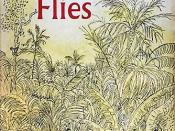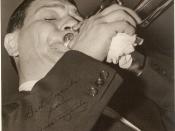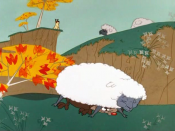"It is a man's own mind, not his enemy or foe, that lures him to evil ways." This quote stated by Buddha somewhat describes how the boys on the island in The Lord of the Flies change from being nice civilized human beings to mean, evil savages. In The Lord of the Flies written by William Golding in 1954, evil is depicted as a terrorizing force that lives deep down inside of man which must be controlled. During the beginning of the novel the boys symbolize a community, united as one, but as the novel progresses Ralph and Jack slowly drift apart, ripping the community into two different groups, the civilized and the savages.
Ralph symbolizes the sensible, sane part of mankind. He tries to setup an orderly society, based upon rules, but struggles to do so because the boys lack obedience. "He wanted to explain how people were never quite what you thought they were."
(p. 49) Ralph is talking about how everyone begins to carry out a certain task as a whole, and then suddenly disperse one by one. Ralph also finds himself struggling against the evil forces of Jack.
On the other hand, Jack symbolizes a savage dictator. "Even the choir applauded; and the freckles on Jack's face disappeared under a blush of mortification." (p. 19) From the beginning Jack didn't like the idea of Ralph being chief, the idea of not being in charge of everyone else, and the idea of having to obey orders given by someone else, which marked the beginning of the everlasting struggle between Ralph and Jack. So as a compromise Ralph put Jack in charge of the choir also known as the hunters. "They knew very well why he hadn't: because of the enormity of the knife descending and cutting into...


